Exciton Science
Leadership reports
Exciton Science enjoyed another year of research excellence and amplified impact in 2022.
Hear from the Chair of the Centre Advisory Board, the Centre Director and the Science Committee Chair as they reflect on the challenges encountered, progress made and achievements of the past 12 months.
Chair's Report
2022 has been a year of recovery for us all after the wearying effects of the Covid-19 pandemic, and it was no different for Exciton Science. Although the climb back to normality is going to be slow, there were some great moments for the Centre. In particular, I really enjoyed the Annual Workshop in Lorne. It was a great opportunity to meet with you all and to see the quality of the Centre’s work on display.
Weirdly, it made me think of the only marathon race I have ever completed (endured?). It was a very long time ago, and my abiding memory is of hearing the sounds of the finish line long before I could see it. Knowing the finish line was near and that spectator numbers were increasing encouraged me to stretch out and try to finish on a good note. It worked, sort of…
We are fast approaching that stage in the life of our Centre. Addressing our largest cohort – students, early-career and mid-career researchers - your experience and achievements will have provided a formative and seminal part of your professional and personal development. Maintaining that level of engagement and satisfaction as you move forward is your new challenge. With the benefit of hindsight, I now realise how lucky I was to have had such a satisfying career both professionally and personally. But it shouldn’t be just down to luck, right?
So, the Japanese have formalised this challenge with the concept of Ikigai. It unifies ideas such as doing what we love, what we’re good at, what we can be paid for and what the world needs. Taken together, they give our life a sense of purpose (see figure). When considered holistically, they can also help take ‘luck’ out of the equation. One of our more astute colleagues pointed out a gap in the Ikigai concept – namely that there is no provision for colleagues or teams. And she’s absolutely correct! As this is such a fundamental omission, I suggest we superimpose another layer (Colleagues) on top of the “standard” four-circle chart. By being part of our Centre I believe you can now confidently place a tick in these circles - and to ensure a satisfying and fulfilling career it might be prudent to occasionally self-assess against these criteria into the future. Finish this race well – with an eye to the future.
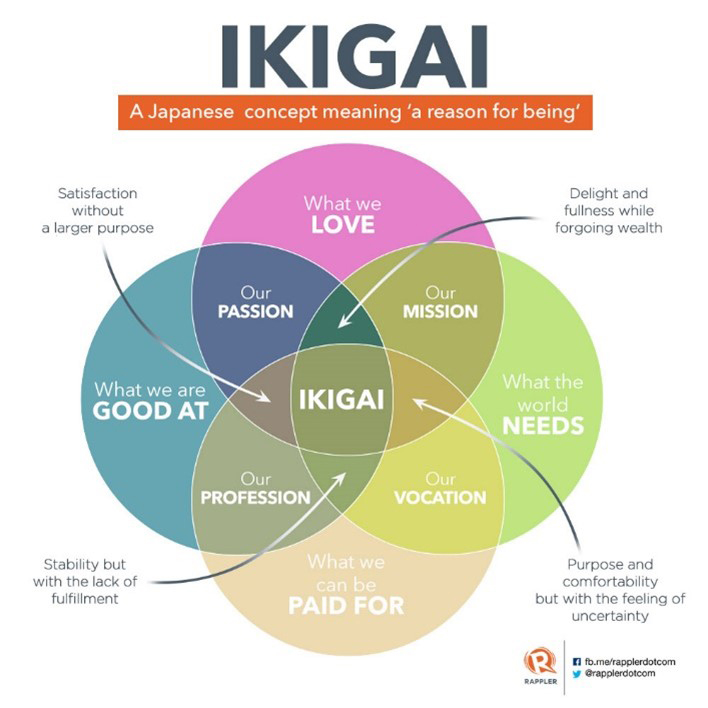
I would like to thank the Executive Committee, management and professional staff for their tireless work and my fellow Centre Advisory Board members for being a joy to work with, and wish you all the very best for the year (and career) ahead.
Gerry Wilson
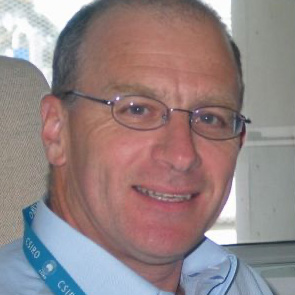
Dr Gerry Wilson
Chair
Centre Advisory Board
Director’s Report
The year 2022 was a watershed for many reasons but for me it was inspirational because I was able to watch as we at Exciton Science picked ourselves up from the delays, the sadness and the gloom of the pandemic and emerged with a clearer sense of purpose and urgency.
This was due in no small measure to the great sense of teamwork and collegiality I saw across the Centre. As the Japanese author Ryunosuke Satoro, said: “Individually, we are one drop. Together, we are an ocean.” The support that staff and students have offered each other throughout the stresses of the last few years has been amazing.
In this annual report you will hopefully also sense the optimism that we all share. As our Chair notes, by bringing together the core ingredients of passion, ability, needs and rewards we create ikigai, a sense of being and purpose.
Following the mid-term review of the Centre, we set ourselves some stretch goals for 2022 and beyond, in terms of publications and impact, and everyone has responded brilliantly. For those addicted to stats, please navigate to our KPIs page.
We have increased our publication numbers but maintained and increased the number of high impact papers as well as the degree of collaboration in our research. We remain closely connected to our partners in industry and overseas through staff and student exchange, and we have created new joint degree programs.
We are continuing to attract increasing numbers of female students and researchers, and we have been leading efforts towards achieving greater diversity through events, policy formation, consultation and actions.
Inevitably, some re-focusing of goals has been necessary but we are still well placed to achieve our part in “helping Australia transition to a sustainable energy future.”
We are forging closer connections on the world science stage and international links are being deepened. Bold ideas that we first conceived in 2016 are now taking solid form, as we move towards the critical phase of the Centre and convert these fundamental new ideas into paradigms and push paradigms into practice. A highly productive year lies behind us, exemplified by some inspiring talks at our Annual Workshop in Lorne, and we hope this report captures that sense of energy and enthusiasm.
Thanks to the professional team that keeps the Centre working, and our ongoing appreciation is owed to the many other supporters and friends of the Centre on our Scientific Advisory Committee (ISAC), our Industry Advisory Committee (IAC), and our Centre Advisory Board (CAB). As ever, we benefit from the time and expertise of a host of generous international colleagues and like-minded researchers, and we hope we can deepen our ties with you still further during the year ahead.
An even better year is already underway in 2023 as we strive to hit our seven-year targets. We’re looking forward to taking you with us on the rest of this exciting adventure.
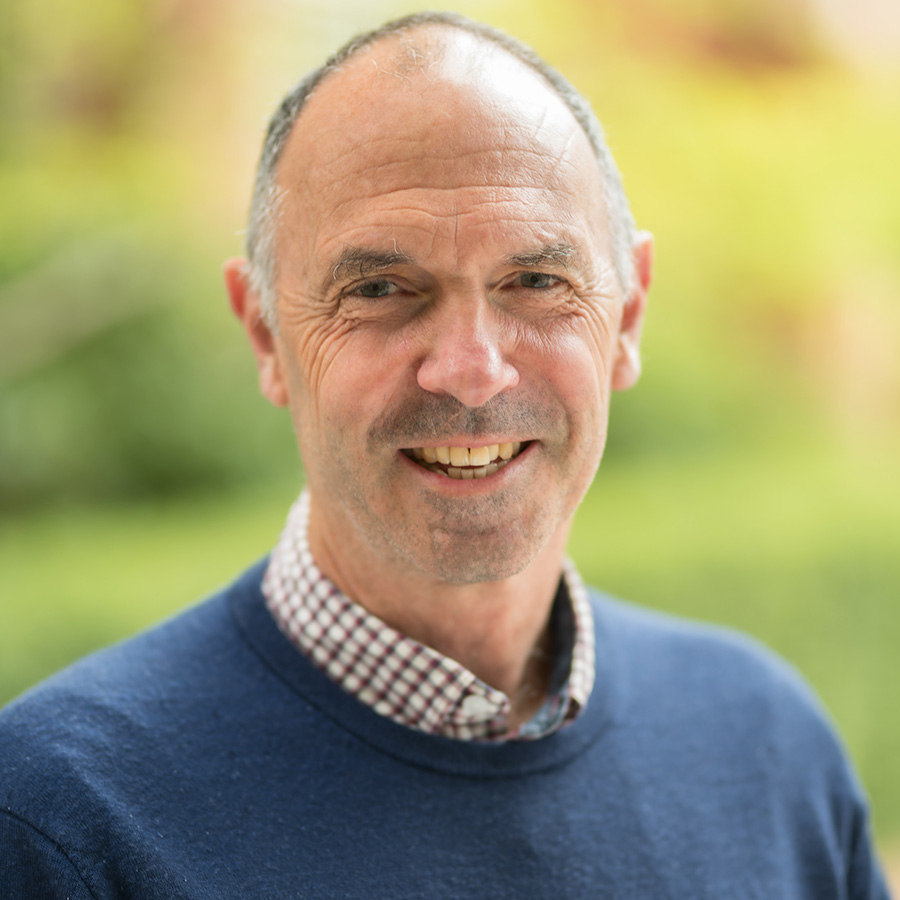
Professor Paul Mulvaney
Centre Director
Science Committee Report
For the Science Committee, 2022 was the year when many things we began in 2017 finally came to fruition. This, combined with a renewed focus as we move into the post-pandemic phase, made for a stimulating and engaging 12 months.
The Science Committee’s cross-node postdoc scheme has been a strong contributor to the recent flood of collaborative papers between nodes, investigators and partners. This scheme has funded researchers working between nodes all across the Centre. Added to this were the partner grants enabling work with the Centre’s Associate Investigators. In 2022 we saw many new papers, and results coming from these collaborative activities. The Science Committee has also been funding small equipment and commercialisation grants across the Centre, with a particular focus on our new ARC DECRA, ARC Future and Exciton Science Research Fellows.
In the latter half of 2022, the Science Committee conducted a review of all platforms with the aim of further supporting the platform goals that will be completed before the end of the Centre. In doing so, a new platform (Platform 2.4 - Rapid Materials Discovery) was created to support the high-throughput screening facility being constructed at Monash University under the leadership of Professor Udo Bach. In addition, the leadership and deputy leadership of some of the platforms was adjusted in response to various members taking up new roles within the Centre and at their home institutions.
On the scientific front, it was great to see some really nice outcomes this year. These included a major new project at UNSW (Omega Silicon) funded by ARENA which capitalises on the Centres fundamental research in singlet fission in photovoltaic applications. The upcoming high-throughput screening facility at Monash has also been accompanied by a series of proof-of-principle results in computational approaches to material screening which have been recently published by the RMIT University and Monash teams. The Centre’s work with DSTG and the RBA, lead by the University of Melbourne node, continues to be a great example of industrial applications of Exciton Science research.
The Committee also notes with enthusiasm the new International Research Training Group established jointly between the University of Melbourne, Monash University and the University of Bayreuth.
This year it was also a pleasure to welcome as a new Chief Investigator James Hutchinson, whose work on surface plasmon photonics and polaritonics will expand and support existing work on these topics at the University of Sydney, Monash and RMIT nodes.
Over the next year the Science Committee will continue to support the world-class research being conducted throughout the Centre, ensuring continued impact of Exciton Science research nationally and internationally.
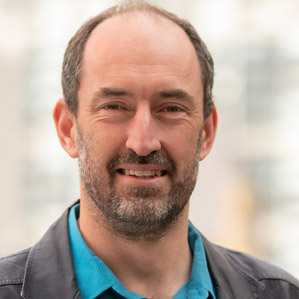
Professor Jared Cole
Chair
Science Committee
Strategic Plan 2022-24
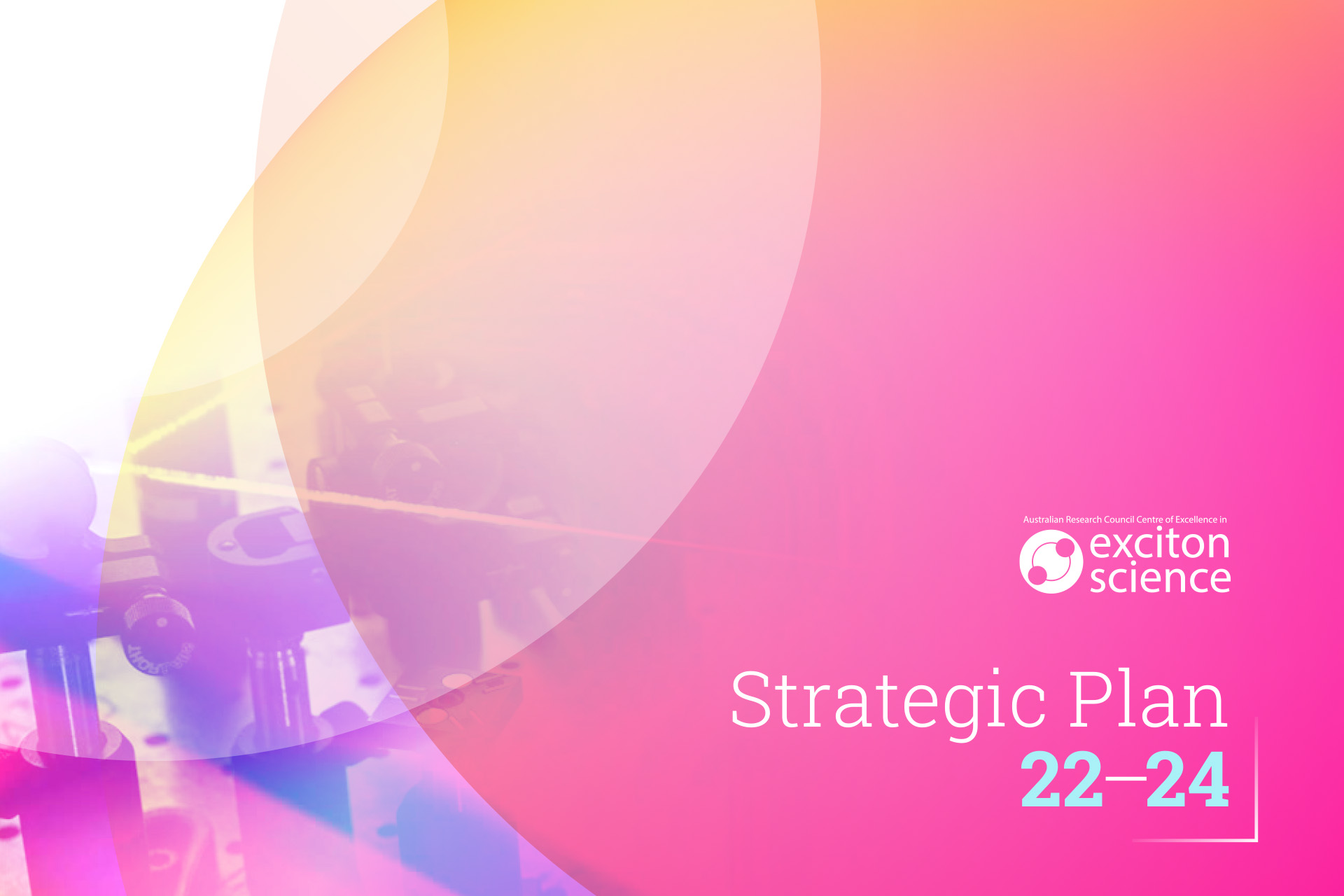
Future of Exciton Science
We are proud to present the ARC Centre of Excellence in Exciton Science Strategic Plan 2022-24.
This document identifies the Centre’s priorities during the years ahead, including continuing research excellence, succession planning and industry engagement.
In it, we restate our vision and mission, and discuss the mechanisms that will enable effective measurement and review of our output and impact.